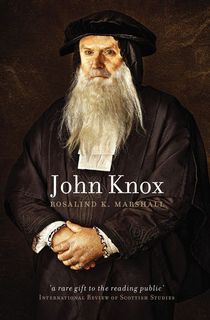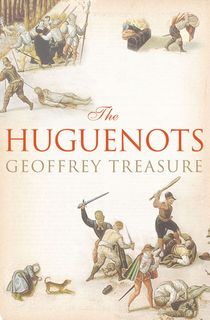The 16th-century religious revolution, known today as the Reformation, challenged the previous dominance of Roman Catholicism in Europe, provoking a schism in the Church which led to the establishment of Protestantism. This split sparked an era of turbulence and conflict, resulting in great bloodshed, but it also prompted far-reaching changes in Western society and culture which have helped to shape the modern world.
The German theologian Martin Luther is widely credited with kickstarting the Reformation. His 1517 work, Ninety-Five Theses, challenged papal authority by attacking corruption within the Roman Catholic Church, particularly with regard to the hugely lucrative practice of selling “indulgences” for the absolution of sins. At the heart of the Reformation movement was the desire to return to a more personal form of faith, one in which believers turned directly to God and the Bible for spiritual guidance.
Luther’s challenge to the Catholic Church received widespread support and led the way for other religious reformers such as John Calvin in France and John Knox in Scotland. In England, reform was sparked by political as well as religious reasons. Pope Clement VII refused to annul Henry VIII’s marriage to Catherine of Aragon so that he could wed Anne Boleyn. The King was not prepared to take “no” for an answer, so he rejected papal authority and, in 1534, established the Church of England, declaring himself to be its Supreme Head.
There is much to discover about the Reformation and the following eight books each provide an excellent introduction to the subject.

John Knox
John Knox is celebrated as one of the key figures in the Scottish Reformation and founder of the Presbyterian Church, but he has not always enjoyed the best of personal reputations. Knox has often been portrayed as a dour and self-righteous character with a misogynistic attitude. Separating fact from fiction, Rosalind K. Marshall investigates the man behind the religious reforms, producing a fascinating and well-balanced history of one of the Reformation’s most influential figures.

The Huguenots
Geoffrey Treasure’s 2013 book on the Huguenots charts the history of the radical Protestant sect in France which was inspired by the teachings of the leading Reformation figure, John Calvin. Initially given the right to worship freely in what was still a Catholic-dominated country, the Huguenots were eventually compelled to flee their native land following the Revocation of the Edict of Nantes in 1685. Treasure’s story of this minority group trying to survive against all odds has been acclaimed as “a monument to the courage and heroism of the Huguenots” (Sunday Telegraph).

Martin Luther: Renegade and Prophet
Lyndal Roper’s compelling “warts and all” biography of Martin Luther provides a fresh take on the complex character of the man who sparked the Reformation. Roper, who was the first female Regius Professor of History at Oxford University, has drawn on many years of research into Luther to produce this “magnificent study of one of history’s most compelling and divisive figures” (The Wall Street Journal). The highly acclaimed biography was selected as a 2017 Book of the Year by the Sunday Times, Spectator and History Today.

Zwingli: God’s Armed Prophet
Bruce Gordon’s powerful 2021 biography of the Swiss preacher Huldrych Zwingli was the first major academic work in many years on this highly influential figure of the early Reformation. Zwingli was a complex and divisive character, who lost his life on the battlefield fighting his Catholic opponents. Based on extensive research including Zwingli’s personal correspondence, Gordon breaks new ground in bringing to life this influential, but often neglected, figure, as well as exploring the Swiss religious leader’s importance to the Reformation movement as a whole.

Reformation: Europe’s House Divided 1490-1700
Described as “a masterpiece of readable scholarship” (The Guardian), Reformation by Diarmaid MacCulloch won both the Wolfson Prize for History and the National Book Critics Circle Award. MacCulloch’s landmark work covers a timespan of more than two centuries, viewing the Reformation as a protracted series of events taking place over a wide geographical area, even stretching as far as the New World. The Reformation’s leading figures are portrayed in vivid detail, but MacCulloch proves himself to be equally adept at describing the experiences of the everyday people caught up in tumultuous events.

Reformations: The Early Modern World, 1450-1650
Carlos Eire’s Reformations focuses on the 200-year period in European history that shaped the modern world. His comprehensive overview begins with the invention of Gutenberg’s printing press, which facilitated the dissemination of fresh ideas regarding religion, and ends with the brutal 17th-century religious conflict now known as the Thirty Years’ War. Eire places particular emphasis on issues that still remain important in the modern age, demonstrating beyond question that events during the Reformation continue to resonate today. Praising Reformations, the New York Times Book Review commented: “Eire’s vast learning is on display throughout this enormous (and handsomely illustrated) work.”

Heretics and Believers: A History of the English Reformation
In Heretics and Believers, Peter Marshall explores the Reformation’s impact on every aspect of 16th-century English society, from Tudor monarchs and church leaders to ordinary members of the clergy and agricultural laborers. In awarding the prestigious 2018 Wolfson Prize for History to Heretics and Believers, the panel of judges praised Marshall’s “beautifully judged account of the English Reformation…ambitious in scope and brilliant in execution”.

The Voices of Morebath: Reformation and Rebellion in an English Village
Irish historian, Eamon Duffy, won the 2002 Hawthornden Prize for Literature for The Voices of Morebath. Duffy uses the real-life 16th-century parish accounts of Morebath’s priest, Sir Christopher Trychay, to provide a rare insight into the English Reformation’s impact on the daily life of a small rural community in Devon. Described by the Sunday Telegraph as “social history at its most compelling”, The Voices of Morebath offers a unique perspective on the English Reformation, which will appeal to casual readers and historians alike.






